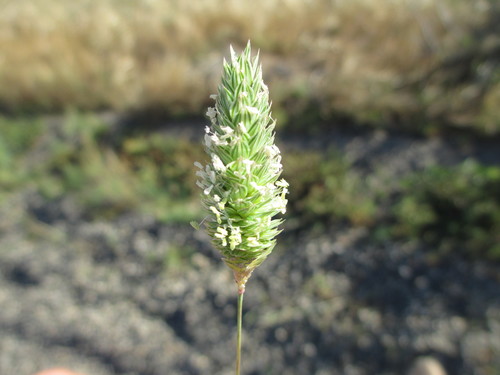It may not be immediately obvious, but now is an ideal time to start addressing the problem of weeds on farm.
Cultivating problem areas will encourage growth of seeds present so they can be destroyed ahead of sowing.
Once a weed problem, particularly involving grass weeds such as Italian ryegrass, black grass and canary grass becomes established on a farm, a comprehensive plan must be developed with professional advice to guide a way out. This may involve alternative cropping along with integrated pest management (IPM) measures and the use of some of the available chemistry.
Certified seed
A proactive approach to preventing these weeds entering or becoming established on your farm is by far the best protection. Key to this is the use of certified seed at sowing.
Irish certified seed has a zero tolerance to these grass weeds along with wild oats and sterile brome. This is contrary to imported seed which has higher tolerance levels of certain weed seeds.
It is vital also to follow other preventative measures to protect our crops. It is widely acknowledged that combines and balers are the biggest spreaders when moving from farm to farm and even field to field.
Machine hygiene can have massive bearing on spread of grass weeds such as canary or black grass, which have tiny seeds with extremely high numbers per head.
As farmers we must be conscious of having processes in place to properly clean down machinery, and where contractors are in use it is vital they have the same processes in place, but also are made aware of problem areas and equally make a farmer aware around cleaning ahead of arrival.

No weeds are tolerated
Certified seed growers, under their growing protocols agreed with the Department of Agriculture, Food and the Marine, must adhere to previous cropping and isolation requirements and as no weeds are tolerated in seed fields they must make a significant time commitment to rogueing weeds. The crop undergoes a series of inspections during growing and at harvest ahead of certification.
Seed growers cannot compromise when it comes to cleaning machinery, during all stages of cultivation, fertilising, spraying and harvesting.
These practices are becoming ever more important on other farms also, as value added crop options such as malting barley and gluten free oats require the highest purity levels.
Other biosecurity measures are becoming just as important for tillage farmers, especially considering there is now confirmed resistance in Italian ryegrass and blackgrass to some of the available chemistry. This involves monitoring any inputs brought onto farm such as knowing the source and possible content of farm yard manure.
Protecting a farm involves prevention, timely positive identification of a problem and immediate steps to plan on the best way of addressing the particular weed. It is a unified approach from farmers all across the country that is necessary to protect our industry from the potential impacts on yield, input costs and cropping plans from the threat of grass weeds.
The Irish Seed Trade Association represents licensed multipliers of certified seed. The association promotes the use of certified seed and advocates for further development of the tillage sector though its contribution to policy and investment in plant breeding and research.
For more information, click here or follow @irishseedtrade on Twitter.

